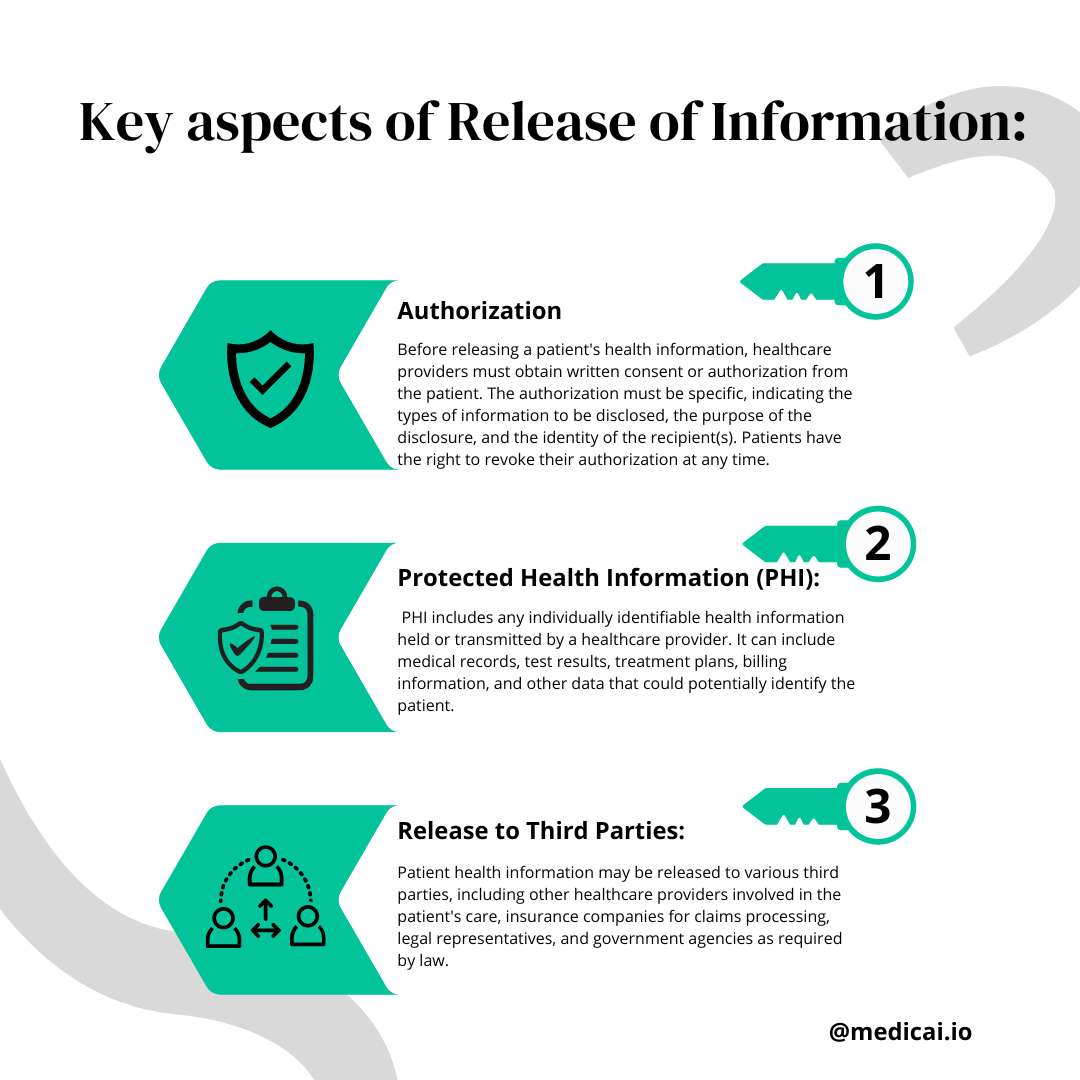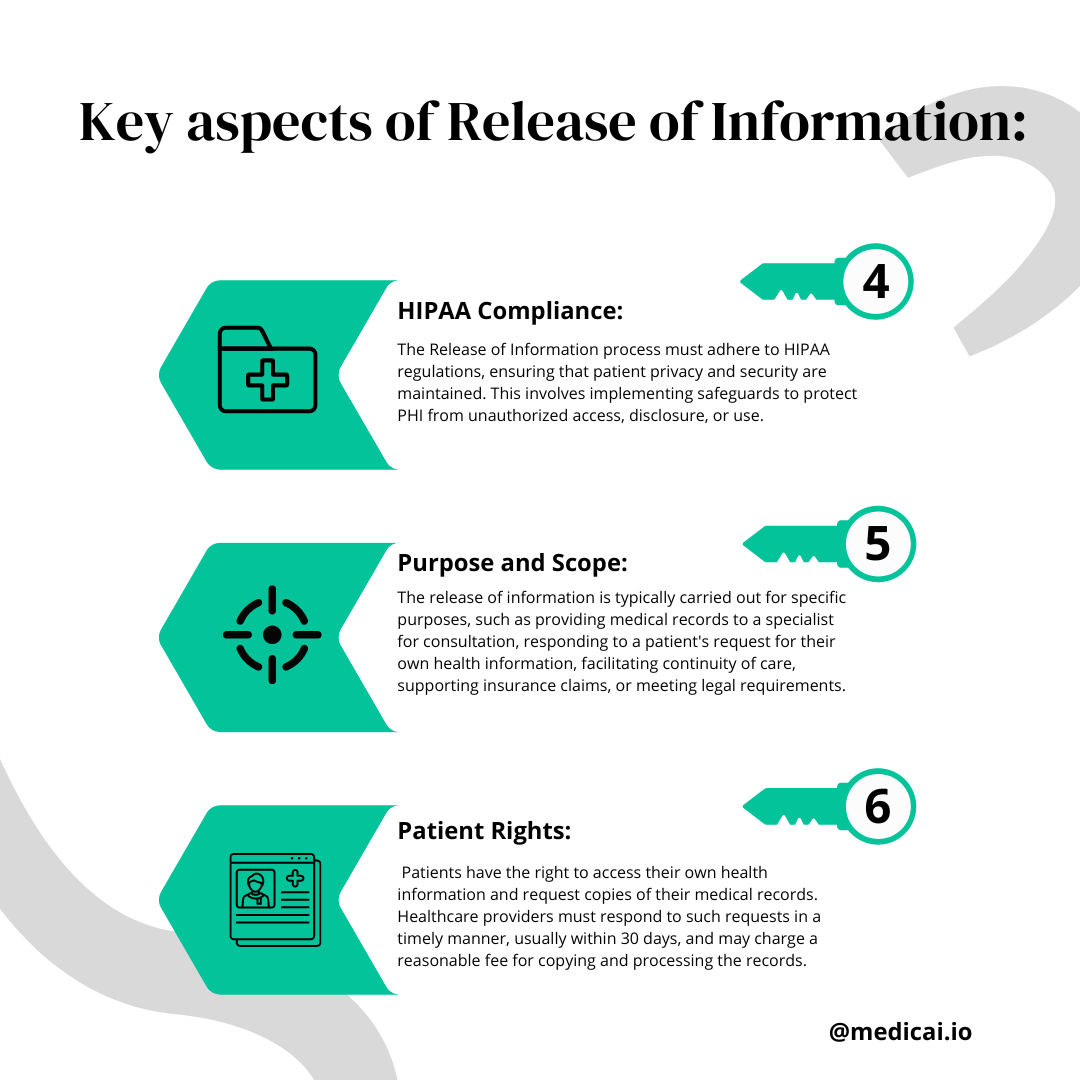Introduction
In today's digital age, patient data plays a pivotal role in healthcare decision-making and treatment planning. However, with the increasing concern over data breaches and privacy violations, ensuring the security and confidentiality of patient information is more critical than ever.
Enter the Release of Information (ROI) process—a carefully managed system that allows authorized parties to access and share patients' protected health information (PHI) while safeguarding their privacy. In this blog post, we will explore the significance of Release of Information and how it impacts patient care and data protection.
Understanding Release of Information (ROI)
Release of Information is a systematic process in the healthcare industry that governs the authorized disclosure of patients' PHI to external entities. Whether it's medical records, lab results, or billing information, this sensitive data is vital for providing seamless patient care, facilitating insurance claims, and supporting legal proceedings, among other purposes. Nevertheless, the process of releasing this information must adhere to strict guidelines, including the Health Insurance Portability and Accountability Act (HIPAA) in the United States, to protect patient privacy and confidentiality.
The Role of Authorization
Central to the Release of Information process is patient authorization. Before any disclosure can occur, healthcare providers must obtain explicit written consent from the patient. The authorization specifies the types of information to be disclosed, the intended recipients, and the purpose of the disclosure. Patients have the right to revoke this authorization at any time, ensuring they retain control over their health information.
Ensuring PHI Security and Compliance
Safeguarding patient privacy is paramount during the ROI process. Healthcare providers must implement robust security measures to protect PHI from unauthorized access, disclosure, or use. This involves utilizing secure electronic health record (EHR) systems, encrypting data transmissions, and employing access controls to limit information availability to authorized personnel only. Compliance with HIPAA and other relevant regulations is mandatory, and any breach of patient privacy can result in severe legal consequences and reputational damage to the healthcare organization.
Empowering Patient Rights
Release of Information also aligns with the concept of empowering patient rights. Patients have the right to access their own health information and request copies of their medical records. Healthcare providers are obligated to respond to these requests in a timely manner, typically within 30 days, and may charge a reasonable fee for copying and processing the records. This transparency empowers patients to actively engage in their healthcare decisions and enables them to maintain continuity of care as they move between different healthcare providers.
Release of Information in the Age of Electronic Health Records
The adoption of Electronic Health Records (EHRs) has transformed the Release of Information process. The transition from paper-based records to digital format has enhanced efficiency, reduced administrative burdens, and facilitated seamless exchange between healthcare providers and organizations. Through secure health information exchange systems and patient portals, patients can access their records conveniently, further encouraging patient engagement.
Medicai facilitates medical image sharing in a secure and compliant way
Medicai facilitates the electronic sharing of imaging studies across different healthcare systems. When authorized by the patient, the platform allows healthcare providers to access and view a patient's imaging records, irrespective of where the studies were initially conducted. This interoperability ensures that relevant and up-to-date imaging information is available to support diagnosis and treatment decisions.
ROI ensures that patient records are delivered promptly to authorized parties upon request. Medicai enables real-time access to imaging studies, reducing delays and improving the efficiency of patient care.
With ROI, patients have control over who can access their health information, ensuring their privacy is protected. Similarly, Medicai empowers patients to be actively involved in their healthcare decisions by granting access to their imaging data to other healthcare providers involved in their care.
Medicai also ensures strict adherence to data security and privacy regulations, such as HIPAA.
Medicai's interoperability standard supports the ROI process by facilitating the timely and accurate sharing of imaging studies, leading to better-informed healthcare decisions and enhanced patient outcomes.
Conclusion
Release of Information is the backbone of patient privacy in the healthcare domain. By providing a structured and controlled approach to sharing protected health information, this process ensures the seamless delivery of patient care, supports legal and insurance proceedings, and enables patients to actively participate in their healthcare journey. Healthcare organizations must uphold the highest standards of security and compliance during the ROI process to safeguard patient trust and confidentiality. In this era of rapid technological advancement, the Release of Information process remains the key to harmonizing patient privacy, data exchange, and exceptional healthcare services.




